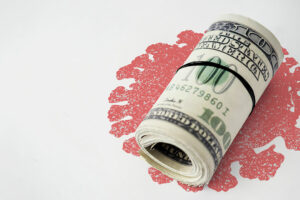
FDI net inflows rise to five-month high in July
By Luisa Maria Jacinta C. Jocson, Reporter
NET INFLOWS of foreign direct investments (FDIs) into the Philippines rose by 5.5% year on year in July to hit a five-month high, the Bangko Sentral ng Pilipinas (BSP) said on Thursday.
Data from the central bank showed FDI net inflows increased to $820 million in July from $778 million in the same month a year ago.
This was the highest FDI inflow in five months or since the $1.366 billion recorded in February.
Month on month, net inflows of FDIs more than doubled from $394 million in June.
FDI inflows are a key source of jobs and capital for the economy.
“The improvement in FDI was driven by higher net inflows across all components,” the BSP said.
Nonresidents’ net investments in debt instruments of local affiliates went up by 2.7% to $610 million in July from $594 million a year ago.
Meanwhile, investments in equity and investment fund shares rose by 14.2% to $211 million from $184 million.
Broken down, foreigners’ net investments in equity capital other than reinvestment of earnings jumped by 16.8% year on year to $76 million from $65 million.
This came as equity capital placements surged by 65.8% to $135 million, while withdrawals more than tripled (262.7%) to $59 million.
The bulk of equity placements in July were mainly from Japan (73%), followed by the United States (13%) and Singapore (8%). These were invested mostly in the manufacturing and real estate industries.
For its part, reinvestment of earnings climbed by 12.8% to $135 million in July from $120 million a year prior.
SEVEN-MONTH FDI
For the first seven months, FDI net inflows rose by 7.5% to $5.256 billion from $4.888 billion in the same period in 2023.
BSP data showed that nonresidents’ investments in equity and investment fund shares jumped by 30.4% to $1.921 billion in the January-July period from $1.474 billion a year ago.
Net foreign investments in equity capital stood at $1.273 billion during the period, 58.3% higher than $804 million seen in the previous year.
Equity capital placements climbed by 58.5% to $1.592 billion, while withdrawals soared by 59.4% to $319 million.
Most of these placements were from the United Kingdom (48%), Japan (34%) and the United States (7%).
Meanwhile, reinvestment of earnings went down by 3.2% to $648 million from $670 million in the comparable year-ago period.
On the other hand, net foreign investments in debt instruments dropped by 2.3% to $3.335 billion in the first seven months from $3.414 billion a year prior.
The BSP expects to record FDI net inflows of $10 billion at end-2024.
“Improved economic conditions and positive growth prospects likely boosted investor confidence,” Jonathan L. Ravelas, senior adviser at professional service firm Reyes Tacandong & Co., said in a Viber message.
“Additionally, policy reforms aimed at creating a more business-friendly environment, such as easing regulations and offering tax incentives, played a significant role.”
Rizal Commercial Banking Corp. Chief Economist Michael L. Ricafort said the higher FDI inflows were also driven by the country’s “attractive demographics and economic growth still among the fastest in Asia.”
The Philippine economy grew by 6.3% in the second quarter, the fastest in five quarters or since 6.4% in the first quarter of 2023.
“Investment commitments generated from overseas trips of the administration for more than a year already would help improve the FDI data going forward, if some of these investments are eventually realized,” he added.
The latest data from the Department of Trade and Industry showed that investment promotion agencies have approved P2.73-trillion worth of investment pledges in the first two years of the Marcos administration.
“Sectoral opportunities, particularly in high-growth areas like technology and renewable energy, attracted substantial investments. Lastly, strategic investments by companies looking to expand their global footprint and acquire new technologies contributed to the surge in inflows,” Mr. Ravelas added.
For the coming months, further benchmark rate cuts could help spur investments as these would lead to lower borrowing costs, he said.
The BSP kicked off its easing cycle in August with a 25-basis-point (bp) rate cut, bringing the policy rate to 6.25%.
BSP Governor Eli M. Remolona, Jr. has said the Monetary Board could slash benchmark interest rates by 50 bps more this year by delivering two more 25-bp cuts at its next two meetings scheduled for Oct. 16 and Dec. 19.
“The free trade agreement signed between the Philippines and South Korea earlier in September 2023 could further boost trade, investments from South Korea and from other countries, employment, and overall economic growth,” Mr. Ricafort added.
He added that the Corporate Recovery and Tax Incentives for Enterprises to Maximize Opportunities for Reinvigorating the Economy (CREATE MORE) bill would also “attract more FDIs with enhanced investment incentives for locators” once signed into law.
The CREATE MORE bill, a priority measure of the administration, was ratified by Congress in September. The measure seeks to address investor concerns on the grant of fiscal and non-fiscal incentives to locators.



